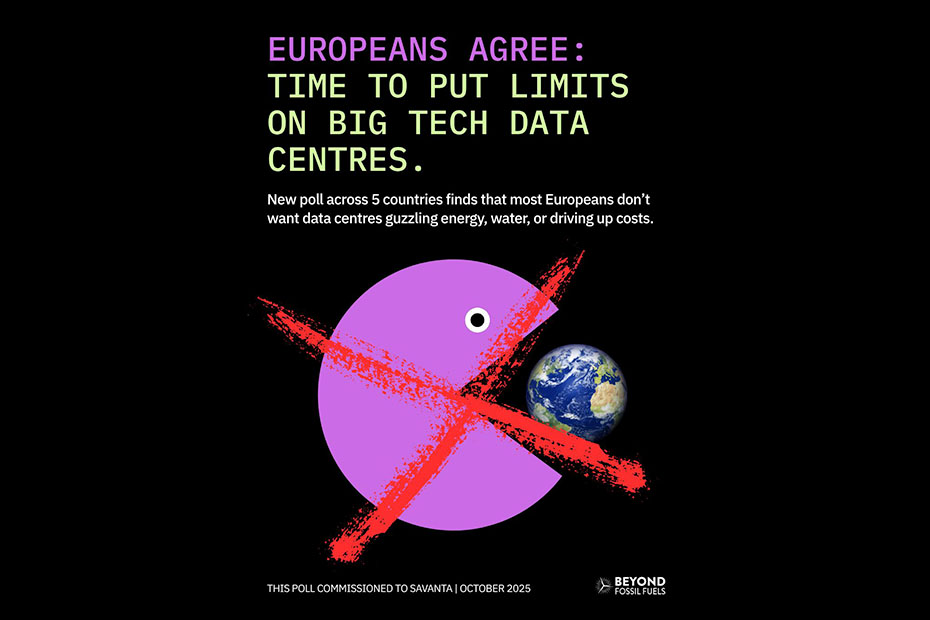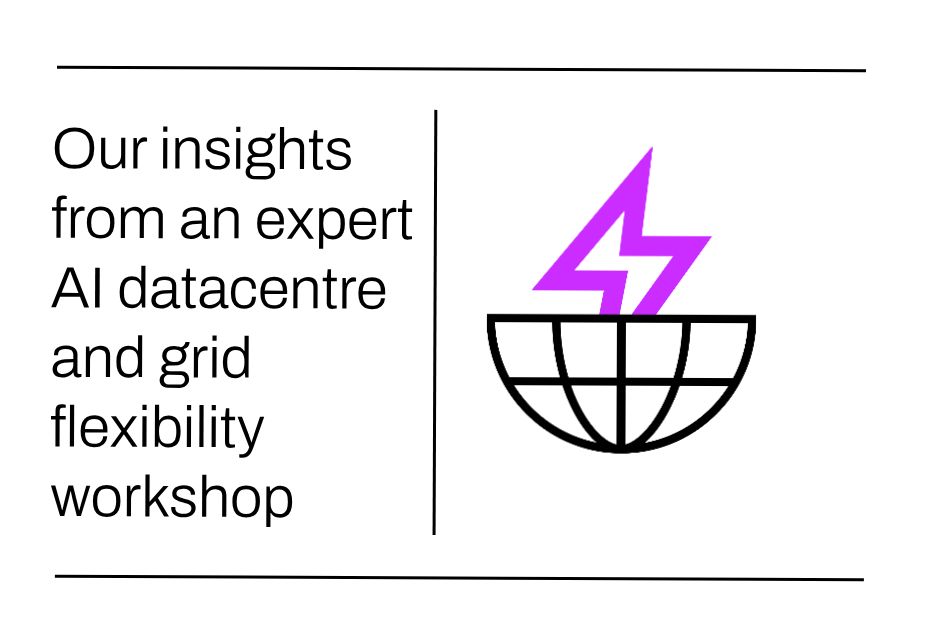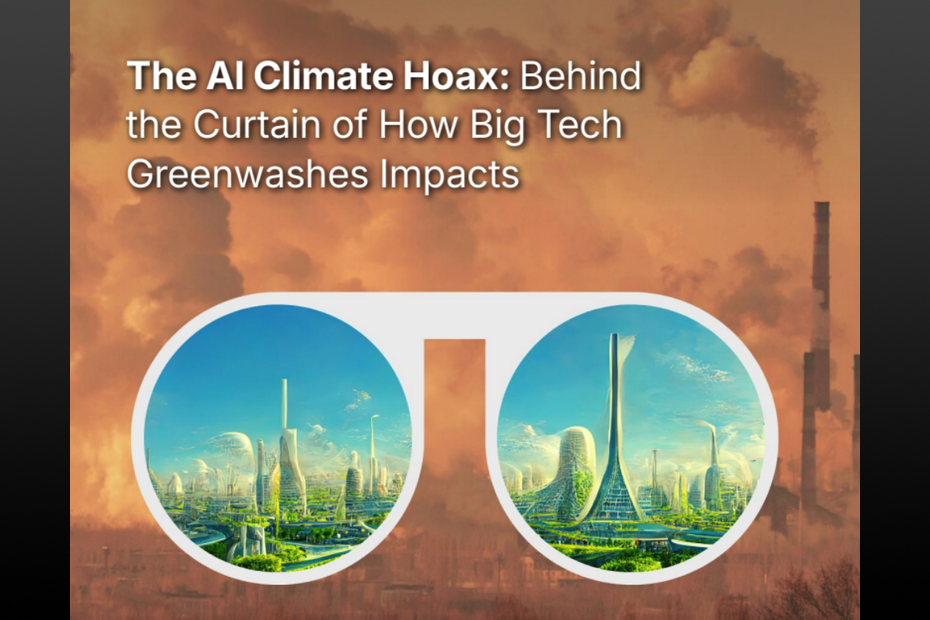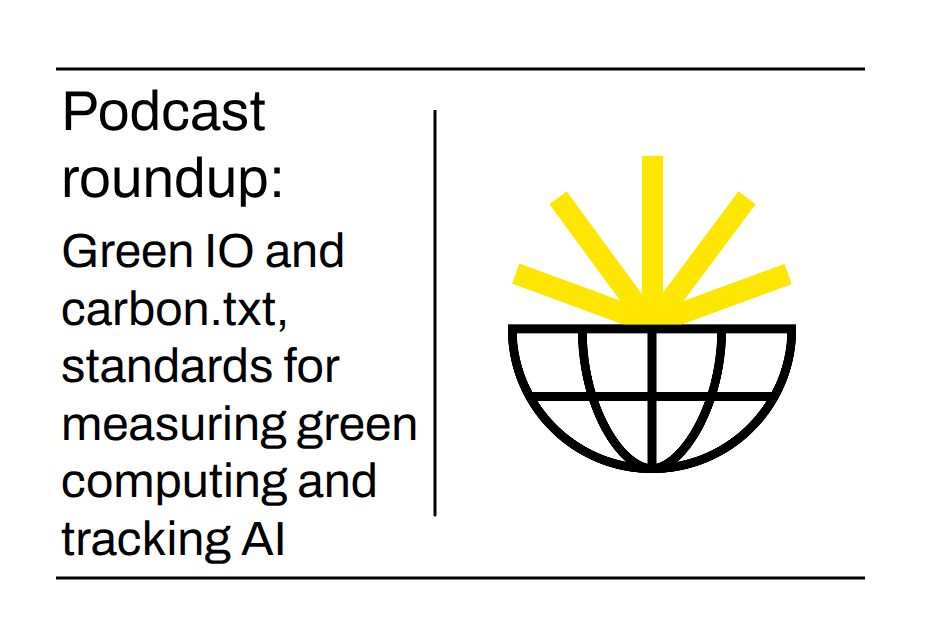In this post, Hannah shares the findings and policy asks from recent polling examining European citizen views on data centre impacts on energy, water and economy, commissioned by Beyond Fossil Fuels in collaboration with us (Green Web Foundation), Algorithm Watch, Algorithm Watch CH (Switzerland), Friends of the Earth Ireland, TuNubeSecaMiRio and Global Action Plan.
On a personal level, I’m really happy to be writing this post in celebration of an important shift in the digital sustainability field. Public perception around the impacts of data centres has changed, and people are demanding government policy to protect them and their communities. The majority of Europeans polled want rules to limit new data centre impacts on energy, water and the economy.
Let’s just sit with that for a minute… I can’t understate how meaningful the results of this polling are.
We’ve been excited to contribute to this work alongside several other esteemed organisations in this space because concrete evidence like this supports the work we, and many other organisations, are doing to push back against techno-solutionist narratives. Ones like “the only way to move forward economically, socially and environmentally is through more digital technology, such as expanded AI capabilities“. We don’t believe this is the only way to secure a good future. You might notice the close tie-in with some of our other recent posts and work in this area: Tell the EU: Keep AI within Planetary Boundaries and No Fossil Fuels in Our Tech Stacks.
The polling’s key findings
The polling was conducted five European countries – Germany, Ireland, Spain, Switzerland and the United Kingdom. A total of 5032 individuals participated in the survey, all aged +18, 51% women, 49% men.
Let’s get into what this research has discovered – it’s a treasure trove of useful info.
The main takeaway is that a staggering majority of those surveyed do not want new data centres to slow down the energy transition, drain water resources and raise costs for electricity consumers, and are very concerned about rising energy consumption from DCs.
Some of the specific findings that strike us are:
- Across all countries and demographics, the majority of respondents support mandating new data centres only be built if new renewable energy sources are created in order to power them (72%), and two-thirds (64%) think data centres should not be built if they are powered with fossil fuels.
- When asked to prioritise energy access across nine sectors in the event of energy or water shortages, respondents consistently ranked data centres at the bottom. Public services including healthcare, housing, and food were seen as far more important.
- The vast majority of respondents demand higher transparency standards from data centres – 85% want them to disclose their environmental impacts, 83% their energy usage, and 83% their energy sourcing.
If you’d like to read more about these findings, how the polling was conducted and what we can take away from this hop to the Beyond Fossil Fuels website for the full briefing. You can also find links to the briefing in german and spanish.
What policy should we ask for?
This polling and resulting briefing shows strong appetite for policy-led solutions to ensure fairer energy access, and for leadership from governments on this topic. New energy demand from data centres should not be allowed to harm the climate by relying on fossil fuels, nor raise electricity costs and compete with broader electrification efforts.
Beyond Fossil Fuels, and its coalition of advisors and partners, therefore asks policy makers to implement the following.
Energy sourcing
- No new data centres should be approved unless they run on new and additional renewable energy.
- Data centres are prohibited from building on-site gas infrastructure and connecting directly to gas networks.
- Policy support to move from an annual to hourly renewable energy accounting system, alongside investment in energy storage technologies.
Sustainable limits
- Caps on energy demand from data centres in areas where they are placing a higher burden on the grid.
- Social and environmental criteria for grid access that prioritise households, public services, and the electrification of European industries over new data centres.
- Sustainable limits on data centres’ access to water especially in areas at risk of water shortage.
- Enforced and strengthened transparency rules at EU and national level around energy and water consumption.
Costs
- Data centres and tech companies financially contribute to the energy transition through taxes on data centre energy use or profits, and through investment in energy storage technologies.
We’re definitely supportive of these asks and they align well with our mission for a fossil-free internet. We look forward to continuing to work together with Beyond Fossil Fuels and many other collaborators to advocate for recognition of these harms and sensible solutions to address them. Stay tuned for more updates on progress in this space.



